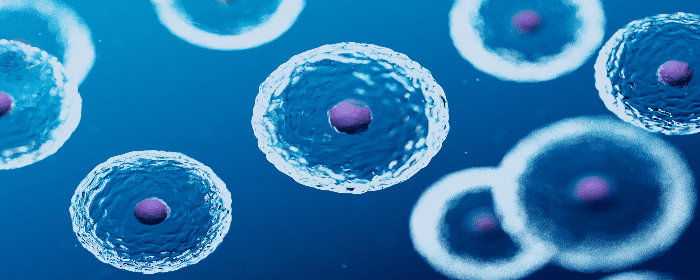Typically understood to support hematopoiesis and to produce the cells of the mesodermal lineage, mesenchymal stem cells (MSCs) found in bone marrow, fat, and other tissues of the body, have recently been found to contain additional properties that include immunomodulator and neurotrophic effects.
Considering earlier studies that have demonstrated favorable effects of MSC treatments in a variety of conditions – including stroke, multiple sclerosis, multi-system atrophy, and amyotrophic lateral sclerosis, Petrou et al. performed this double-blind study as a way to evaluate the best way of administration and the safety and clinical efficacy of MSC transplantation – specifically in patients with active and progressive multiple sclerosis.
The response of the 48 patients with progressive multiple sclerosis and with displaying evidence of either clinical worsening or activity during the previous year in this study were evaluated after being treated intrathecally (IT) or intravenously (IV) with autologous MSCs or with sham injections. Having identified a critical and unmet need for treatment, the goal of Petrou et al.’s study was to examine the therapeutic efficacy of MSC transplantation in this specific population.
Over the course of this controlled clinical trial, participants were randomly assigned to three treatment groups and treated (either intrathecally or intravenously) with autologous MSCs or with sham injections. At the 6-month mark, the authors of this study retreated half of the patients in both the MSC-IT and MSC-IV groups with MSCs, while the remaining participants were treated with sham injections. The same process occurred with patients initially treated with sham injections; meaning that at the 6-month mark, half were either treated with MSC-IT or MSC-IV.
Prior to the start of this study, Petrou et al. established a number of primary and secondary endpoints. Predetermined primary endpoints of this study included: the safety of the MSC-IV and MSC-IT treatments and the difference among the three groups in relation to performance on the Expanded Disability Status Scale (EDSS) at 6- and 12-month intervals. Predetermined secondary endpoints included the difference between the sham-treated and MSC-IT or MSC-IV treated group in the number of relapses and the relapse rate, the number of MRI gadolinium-enhancing lesions, the annualized rate of change in the T2 lesion load on MRI, percent brain volume change, performance on a series of physical and cognitive functions, and the retinal nerve fiber layer thickness.
At the conclusion of this 14-month trial, the authors reported that the study demonstrated positive results in all predetermined primary endpoints. More specifically, throughout the course of this study, the authors discovered that significantly fewer patients experienced treatment failure in the MSC0IT and MSC-IV groups compared with those in the sham-treated group. Additionally, over the course of the following year, nearly 59% and 41% of patients treated with MSC-IT and MSC-IV exhibited no evidence of multiple sclerosis activity; this is compared with less than 10% of patients in the sham-treated group.
Significant improvements of those receiving MSC-IT treatment (compared to sham treatment) were also observed in the following: ambulation index, the sum of functional scores, 25-foot timed walk test, 9-hole peg tests, PASAT and OWAT/KAVE cognitive tests, and newer biomarkers, including retinal nerve fiber layer and motor network. The authors also report beneficial, but less significant effects were observed in the MSC-IV groups.
Although the authors report a number of limitations associated with this study, including a small number of patients in each group, the short duration of the study, and the crossover design of the study (which could have resulted in a “carry-over” effect from the first cycle of treatment), they also conclude that the clinically significant findings observed in patients with progressive multiple sclerosis who were previously unresponsive to traditional or conventional therapies provide clear evidence of short-term efficacy and possible indications of neuroprotection induced by administration of autologous MSCs in patients with progressive multiple sclerosis.
In addition, the authors found that intrathecal administration of MSCs appears more beneficial than intravenous, as well as the potential benefits provided by receiving repeated injections of MSCs.
As such, Petrou et al. conclude by calling for a larger phase III study to confirm these findings and as a way to further evaluate the therapeutic potential of autologous MSCs in neuroinflammatory and neurodegenerative diseases, including active progressive multiple sclerosis.
Source: (2020, December 1). Beneficial effects of autologous mesenchymal stem cell … – PubMed. from https://pubmed.ncbi.nlm.nih.gov/33253391/


 St. Petersburg, Florida
St. Petersburg, Florida
